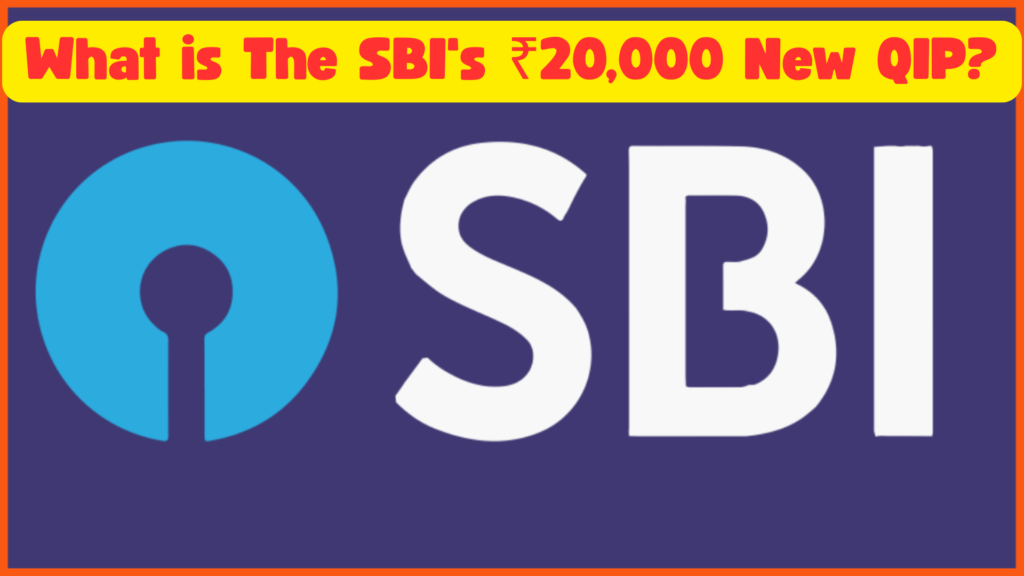

What is The SBI’s ₹20,000 New QIP?
Disclaimer: This article is for informational purposes only. Please consult your financial advisor before making any investment decisions.
SBI to Raise ₹20,000 Crore via Bonds in FY26: A Strategic Move for Capital Strengthening
The State Bank of India (SBI), India’s largest public sector bank, has announced its plan to raise up to ₹20,000 crore through the issuance of bonds to domestic investors during the financial year 2025-26 (FY26). This decision was disclosed in a regulatory filing made on Wednesday, showcasing SBI’s proactive steps toward strengthening its capital base, in compliance with Basel III norms.
According to the official statement, the SBI board has granted approval to raise funds in Indian Rupees through the issue of Basel III-compliant Additional Tier 1 (AT1) and Tier 2 bonds, aimed exclusively at domestic investors. The issuance is subject to approval from the Government of India (GOI), wherever applicable. This fundraise aligns with the bank’s long-term strategy to meet growing credit demands while maintaining robust capital adequacy in line with regulatory requirements.
Also Read; What is QIP? Why Important For Promoters & Investors?
The capital raised will help SBI to manage its risk-weighted assets efficiently and maintain a comfortable Capital Adequacy Ratio (CAR). Under the Basel III framework, banks are required to hold more capital to improve their ability to absorb shocks arising from financial and economic stress. AT1 bonds are perpetual in nature and do not have a maturity date, while Tier 2 bonds have a minimum tenure of five years and are used to strengthen a bank’s supplementary capital.
This announcement is significant not just from a financial stability standpoint but also signals SBI’s confidence in India’s economic trajectory. The decision comes at a time when credit demand across sectors is showing sustained growth, with the Reserve Bank of India (RBI) projecting strong GDP growth in the current fiscal. The banking sector, particularly large institutions like SBI, plays a vital role in meeting the capital and liquidity needs of businesses and infrastructure projects.
From a market perspective, SBI’s announcement had a positive impact on its stock price. On Wednesday, shares of SBI were trading at ₹831 apiece on the Bombay Stock Exchange (BSE), marking a 1.74% increase from the previous close. This upward movement reflects investor optimism regarding the bank’s financial strength and future growth prospects.
What is The SBI’s ₹20,000 New QIP? For domestic investors, this bond issuance presents an attractive investment avenue, particularly in the fixed-income space. Given SBI’s strong credit rating and dominant position in the Indian banking sector, both institutional and retail investors may find these bonds a reliable and relatively low-risk investment.
Also Read; शून्य निवेश; बिजनेस आइडिया और निष्पादन रणनीति रणनीति
Conclusion: What is The SBI’s ₹20,000 New QIP?
SBI’s decision to issue ₹20,000 crore worth of bonds during FY26 is a timely and strategic move, aligning with global capital standards and India’s domestic economic momentum. The infusion of capital through AT1 and Tier 2 bonds will not only reinforce SBI’s balance sheet but also support its growth ambitions in lending, infrastructure funding, and digital banking initiatives. As India’s economy continues to expand, SBI’s proactive capital planning places it in a strong position to lead the banking sector with resilience and stability. Investors, market analysts, and policymakers will be closely watching the upcoming tranches and their reception in the domestic financial ecosystem.
Disclaimer: This article is for informational purposes only. Please consult your financial advisor before making any investment decisions.



